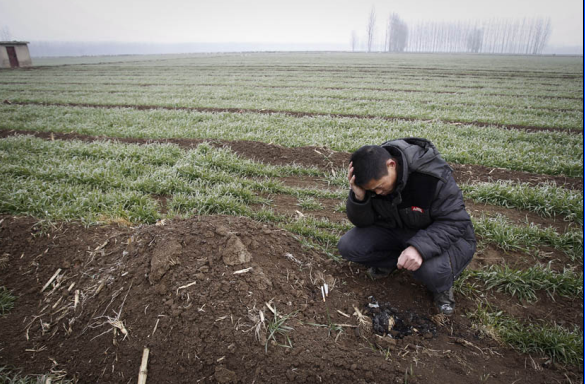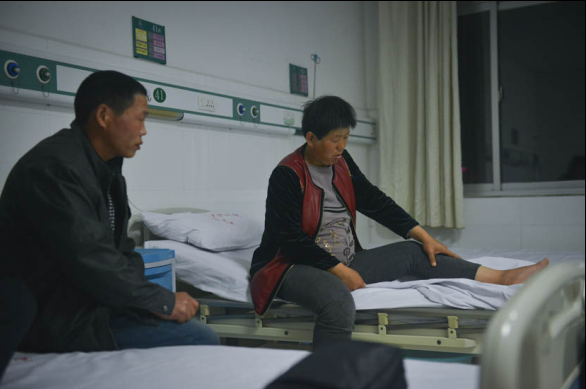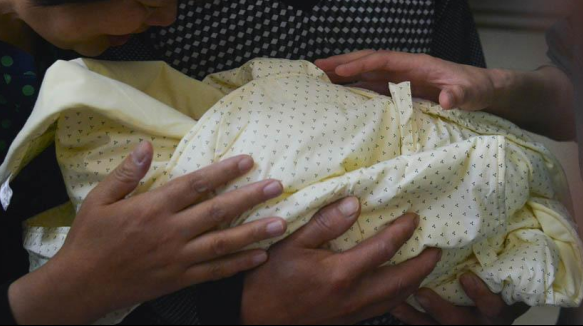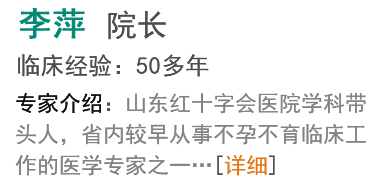澎湃新闻英文版“第六声”报道我院公益救助高龄失独再生育案例
澎湃新闻英文版“第六声”在四月十九号报道了济南红绘医院公益救助高龄失独再生育案例。
“澎湃新闻”属于上海报业集团,是专注时政与思想的媒体开放平台。“主打时政新闻与思想分析,生产并聚合中文互联网世界中优质的时政思想类内容。而澎湃新闻英文版“第六声”更是致力于向外国人展示中国的真实发展现状。 此次澎湃新闻英文版“第六声”讲述了中国失独家庭的空巢现状问题,并报道了失独家庭何敬运和刘桂兰一家从失去独子一直到在济南红绘医院的免费救助失独再生育家庭的活动下重新孕育孩子的过程,下面是报道原文。
原文如下:
Baishi Village, Shandong Province
At 11 a.m. on a December morning in 2013, migrant worker He Jingyun was on a bus to a new job when the shrill ring of his phone ripped him from his thoughts. It was his wife, Liu Guilan. She sounded distressed. He Xiwen, their 23-year-old only son, had been in a traffic accident in the distant province of Jiangsu, where he lived with his wife and daughter. He Jingyun thought about the car he and his wife had purchased for their son and felt a sudden pang of guilt.
Jingyun immediately returned back to his home in Shandong province, abandoning his job in neighboring Hebei. He often left the village of Baishi to find work, escaping the poorly paid farming or mining jobs that were his only options there. At home, he lived with his wife in a simple one-story house built around a concrete courtyard — a style typical of China’s northern farming villages. The family toilet was a hole in the ground located in a concrete shed off to one side of the yard, and inside the house magnolia paint was peeling off the bare walls.

He Jingyun mourns his late son He Xiwen on a farm in Jining, Shandong province, Jan. 7, 2016. Gao Zheng/Sixth Tone
The family led a humble life, and if Xiwen were seriously injured, Jingyun knew the cost of treatment would overwhelm them. Xiwen was covered by basic insurance, but he wouldn’t see any reimbursement until months later, and even then at only 70 percent of the total cost. The couple begged and borrowed 60,000 yuan ($9,270) from friends and family. Not having a car, they rented an unlicensed taxi and set off on the 650-kilometer drive to Jiangsu, telling friends that they were going to “save” their son. It was 2 a.m. when they finally pulled up outside their son’s house. From the car, they could see their daughter-in-law and her family illuminated by the headlights’ harsh white light. Reality hit. “If my son were still alive, everyone would’ve still been at the hospital,” Liu says. Xiwen, her only child, was dead.
There are no official statistics on the number of families in China that have lost only children. But according to a rough estimate in a 2012 article in Xinkuaiwang, a Guangzhou-based newspaper, it could be over 15 million. China passed its one-child policy in 1982, making it illegal for couples to have more than one child, in an effort by the central government to control population growth. The only exceptions were well-off families who could afford the fine, members of Chinese ethnic minorities, and, after a loosening of the policy in 2013, married couples where both spouses were themselves only children. With the policy in effect for 30-plus years, China’s population suffered an aging crisis, and on Jan. 1, 2016, the central government responded by implementing China’s new two-child policy to try to ease the demographic imbalance. Though the regulation is now history, the effects of the one-child policy live on through the lives of parents who lost their only child while living through it, and in the memories of the family planning officials who were tasked with enforcing it.
Baishi Village, Shandong Province
With Xiwen gone, He and Liu didn’t qualify for welfare subsidies because, at the age of 43, they were deemed too young. With no other option, they decided to try for another child in an attempt to safeguard their future. In the course of a few months they visited over 10 different hospitals, following recommendations from friends and family. “As soon as we had money, we would go to another hospital,” says He. But nothing worked. They spent 10,000 yuan on a fertility diagnosis, but the hospital declined to operate because of their age. That year He’s corn crop made a profit of only 1,000 yuan. Dejected and in debt to friends and family, they returned home.
But He and Liu never gave up hope. In July 2014, a TV commercial for the Red Cross hospital in Jinan, also in Shandong, kicked their resolve into gear again. “We weren’t ready to accept our fate,” says He. “So we decided to try once more.” They made the three-hour bus trip to Jinan, almost not daring to hope for the best. The Red Cross hospital in Jinan started a national initiative in 2014 that, through free diagnosis and surgery, gives bereaved parents from China’s poorest areas a second chance at having a child. It was the couple’s last hope.
On July 7, 2014, He and Liu went to the hospital and saw Dr. Wu Min, who told them the hospital could perform surgery on both of them that would increase their chances of getting pregnant. But at 43 years old, Liu was at greater risk of experiencing complications such as diabetes or high blood pressure, or of having a child with birth defects. Wu stressed the risks to Liu’s health and asked if she was absolutely certain that she wanted to proceed. “Doctor,” Liu said, tightly gripping Wu’s hand, “I’m willing to lose my life so that I can give my husband a child.”

Liu Guilan, 10 months pregnant, sits in a hospital bed in Jining, Shandong province, May 11, 2015. She is scheduled for a cesarean section the next day. Sky/VCG
Later that month, the surgery was completed without a hitch. Because of high costs, the Red Cross hospital doesn’t offer in vitro fertilization, which has a pregnancy success rate of 30 to 40 percent. Instead they provide other surgical approaches free of charge, but the chance of pregnancy is only around 10 percent. Because of this low success rate and their age, the couple decided to forego a recuperation period and try for a child immediately after the surgery. In August they went back to the hospital for a checkup and were astonished to discover that Liu was pregnant.
Baishi, Shandong Province
In May 2015 He Zhengqian was born by caesarean section in a local hospital. As a baby he was healthy, if a little underweight. The Red Cross initiative was the first of its kind in China, and He and Liu were the first couple to get pregnant because of its work, attracting the attention of Chinese media. A crew from CCTV was present for the birth. But the joy didn’t last long. “After our son was born, he was taken to the intensive care unit,” says He, letting out the sigh of a defeated man. “One day in intensive care costs over 1,000 yuan. Our son had to stay there for nine days.”

Zhengqian’s birth was the end of a long and expensive journey for He and Liu. But the initial elation has now given way to a stark financial reality. Suffering from a pain in his waist, He is finding it difficult to do manual labor — something he knows needs to change. “After Spring Festival I’ll go and work at the quarry part-time,” he says. “But I have no way to take on long-term jobs. I have to come home to look after my wife and child.” With the family’s savings gone, the arrival of a baby has been a huge burden. He often feels conflicted about their choice. “I still don’t know if having this child was the right thing to do,” he says. “Zhengqian needs raising, and my mother and my wife’s father both need looking after. I have no idea how we’re going to cope.” As He speaks, it’s as if each tear is slicing into the coarse skin on his face. “I don’t dare think whether we’d be better off dead — there’s no use thinking about that.”
With additional reporting by Fu Danni.
(Header image: He Jingyun walks to his son’s grave near a farm in Jining, Shandong province, Jan. 7, 2016. Gao Zheng/Sixth Tone)
















